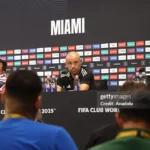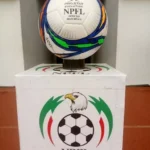Hachim Mastour, once hailed as the next great hope of Moroccan football, has made a quiet yet poignant statement about his continued ambition to represent his country—despite years of setbacks and a career that never matched the early hype.
At just 14, Mastour was recruited by AC Milan amid intense fanfare, rubbing shoulders with footballing royalty such as Zlatan Ibrahimović, Kaká, and Robinho.
By 16, he had already made his senior debut for the Moroccan national team.
But nearly a decade later, at 26, Mastour finds himself without a club following his departure from Morocco’s Union Touarga in January 2025.
Since then, the once-celebrated prodigy has returned to Reggio Emilia—his hometown in Italy—where he now trains alone with his personal coach, Stefano Cellario.
Far from the spotlight of European stadiums, Mastour is quietly rebuilding both body and spirit.
In a reflective interview with L’Équipe, the former attacking midfielder opened up about his new priorities and long-term dreams.
“I’m 26 years old, I don’t set myself any limits, in the long term, I still dream of playing in the Champions League, the World Cup (…) But I would also like to prepare for my life after, perhaps study psychology, surely because of everything I’ve experienced,” he said, referencing his battle with depression.
It’s a candid confession and an implicit appeal to national team manager Walid Regragui, whose squad captured global attention during Morocco’s historic World Cup run in Qatar.
Mastour’s words may not have directly addressed the coach, but his intentions are unmistakable: he wants another chance.
“I still dream of playing in the World Cup,” he added—an aspiration that feels more like a message than a mere statement.
Following stints with Renaissance Zemamra and Union Touarga in Morocco, Mastour’s career has been marked by inconsistency and unfulfilled potential.
His only appearance for the Atlas Lions came in 2015, when he played a single minute against Libya.
Since then, international football has remained out of reach.
His dream, however, remains intact. But for Mastour to be considered again for national selection, he must first find a new club, regain match fitness, and prove his competitiveness on the pitch.
Until then, his vision of a return to the world stage remains just that—a vision waiting to be realized.










